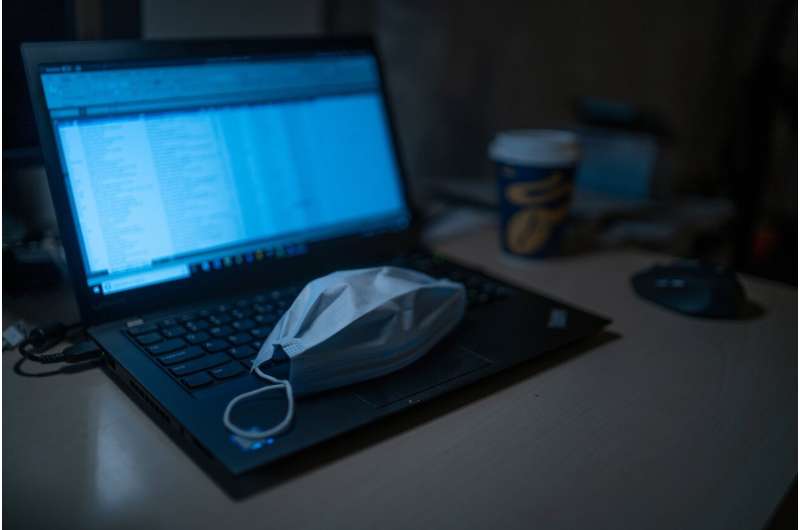Credit: Unsplash/CC0 Public Domain
New restrictions to curb COVID transmission took effect in Israel Wednesday as the prime minister urged citizens to get vaccinated, after the largely inoculated country saw its highest daily infection figures since January.
The measures, announced Sunday, require vaccination certificates or negative coronavirus tests to enter a range of public spaces, including restaurants and bars, cultural and sports venues, hotels and gyms.
The same applies to worshippers wishing to enter synagogues, mosques or churches with more than 50 people in attendance.
The capacity of stores, shopping malls and industrial parks has also been limited to one person per seven square metres (75 square feet).
After its launch last December, Israel's vaccination drive helped to drastically bring down infections.
According to the health ministry, 58 percent of Israel's roughly 9.3 million residents have received two shots of the Pfizer/BioNTech vaccine.
But infections are surging again, driven by the spread of the more contagious Delta variant of the virus, with restrictions that were lifted in June reimposed since July.
According to the health ministry, more than 8,700 people tested positive for coronavirus on Tuesday, the highest number for a single day since January.
'Vaccines work'
In recent weeks, the state has begun administering booster shots to Israelis aged 50 and over, while urging the vaccination of children as young as 12.
About one million Israelis have not been vaccinated, even though they are eligible.
Prime Minister Naftali Bennett has warned that if inoculation numbers don't increase, the Jewish state could be facing another lockdown during the High Holiday season, which begins with New Year celebrations on September 6.
Bennett said his government's "strategy is clear... protect everyone's health and keep the country open, because a new lockdown would be destructive to the future of the state."
"Vaccines work," he added. "It is a scientific fact. It saves lives."
Cases are also rising among Palestinians in the occupied West Bank and the Israeli-blockaded Gaza Strip.
Official figures show that infection rates have risen seven fold since August 1, with several hundred cases a day reported in recent days, after weeks of two-digit tallies.
The Palestinian health ministry official in charge of hospitals, Naji Nazzal, blamed the surge and the rising number of hospitalisations on the Delta variant, the official Wafa news agency reported.
The health ministry spokesman in Hamas controlled Gaza, Ashraf al-Qudra, said Wednesday that the coastal strip was suffering "the third wave of this epidemic."
Gaza resident Helen El Jamel told AFP that after cases ebbed people became complacent, and "were mixing in the markets, did not use sterilisers, and did not wear a mask."
© 2021 AFP
























